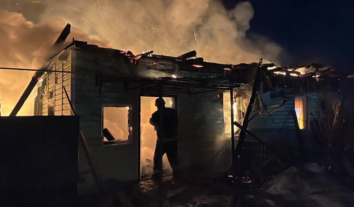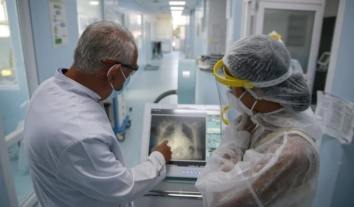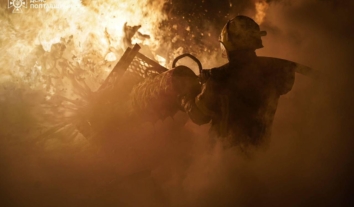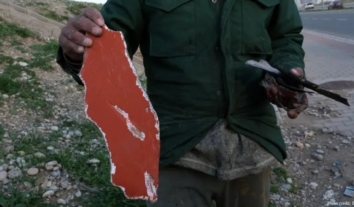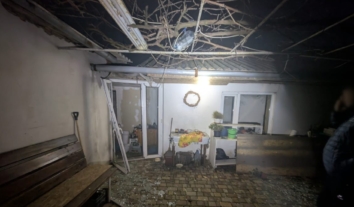Russia violates international humanitarian law with mass property seizures of Ukrainians in temporarily occupied territories – OHCHR report
The Office of the United Nations High Commissioner for Human Rights (OHCHR) reminded the Russian Federation in its “Report on the Human rights situation in Ukraine from September 1 to November 2024” that international humanitarian law (IHL) strictly forbids occupying powers from confiscating private property.
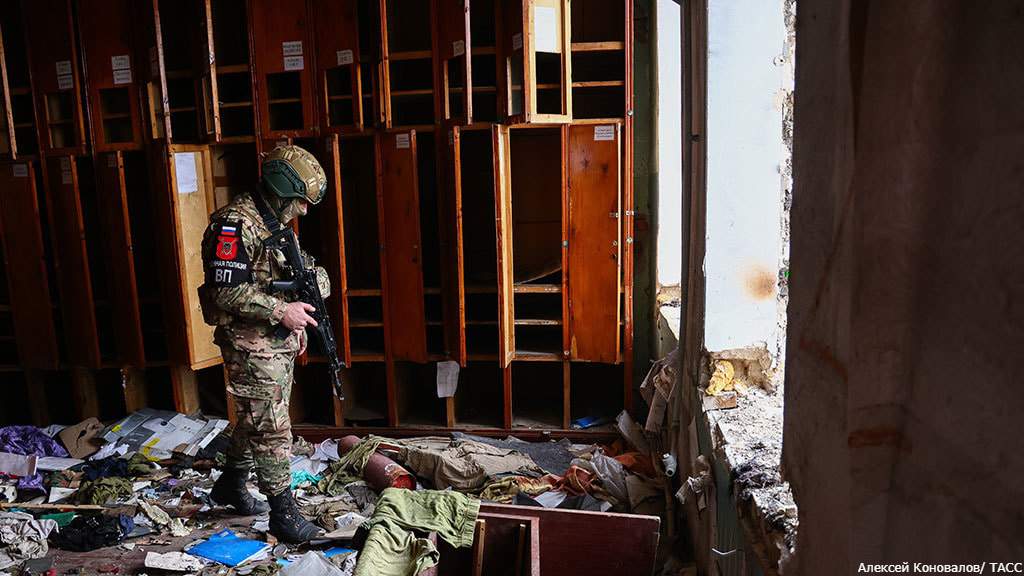
In the document, it is reported that the Russian occupying authorities have implemented new laws allowing the seizure of “abandoned” residential properties across occupied Ukrainian territories, according to recent reports.
The legislation, enacted in 2023-2024, requires property owners in occupied Donetsk, Luhansk, Kherson, and Zaporizhzhia regions to prove ownership or risk forfeiture to occupation councils. In the occupied territory of Donetsk and Luhansk regions, there are additional requirements that individuals must present themselves in person to confirm ownership of their property.
Furthermore, Russian legislation provides for limitations in buying or selling property for those who do not have Russian citizenship, which has in practice created a requirement for Ukrainians to obtain a Russian passport in order to make transactions regarding their personal property.
The OHCHR highlighted that these measures violate international humanitarian law, which prohibits private property confiscation by occupying powersі .
Moreover, the imposition of the Russian system of property registration introduces a far-reaching change to the existing legal and institutional order, in violation of IHLі . IHL also forbids the occupying Power from compelling residents to “swear allegiance to the hostile Power”, implicit in the obligation to acquire Russian citizenship in order to protect or enforce their property rights.
During the reporting period, OHCHR interviewed 21 displaced property owners – 19 women, two men – and revealed that eight interviewees had their homes completely destroyed and that they had lost all their belongings.
Three interviewees were aware that their apartments were being occupied without their permission, in one case by members of the Russian armed forces.
All interviewees said that they had no intention of travelling to the occupied territory to claim ownership of or re-register their property, or to apply for compensation from the Government of the Russian Federation for their destroyed real estate.
They explained that they did not want to obtain Russian citizenship and that the journey involved risky, difficult, and long travel to occupied territory, including checkpoints and questioning while travelling through the Russian Federation.
Some also expressed fear that they would be detained by Russian authorities for their actual or perceived pro-Ukrainian views or connections to persons serving in the Ukrainian armed forces.
The OHCHR stressed that the property seizure policies particularly impact housing rights and the future ability of displaced persons to return home.
By way of background, according to Russian legislation, from January 1 to April 30, 2025, individuals who have not obtained a Russian passport or residence permit in temporarily occupied territories (TOT) must leave. Ukrainian individuals without a Russian passport may end up on the register of foreigners.
In order to change the demographic composition of the population in the TOT and deport residents disloyal to the Russian Federation, Russia has made it impossible to find employment, open and use a bank account, and access education, social benefits, services, payments, and medical care.
Previously, Tetiana Horodianska, head of the Department of Rights of Citizens in Temporarily Occupied Territories at the Ukrainian Ombudsman’s Office, outlined methods of Russians to force the passportization of Ukrainian citizens in the TOT.
The Russian Federation is ready to export its scheme of passport issuance into the EU, post-Soviet countries, and other European states. This scheme was refined during its military aggression in Ukrainе, according to the human rights report “Passportisation in Ukraine”.
On January 2, 2025, ZMINA advocacy director Alena Lunova told Ukrainian public radio Suspilne that Russia maintains a registry of controlled individuals that tracks foreigners who allegedly violated residency rules or have invalid documents on Russian territory. This system creates severe risks for Ukrainians living in occupied territories.
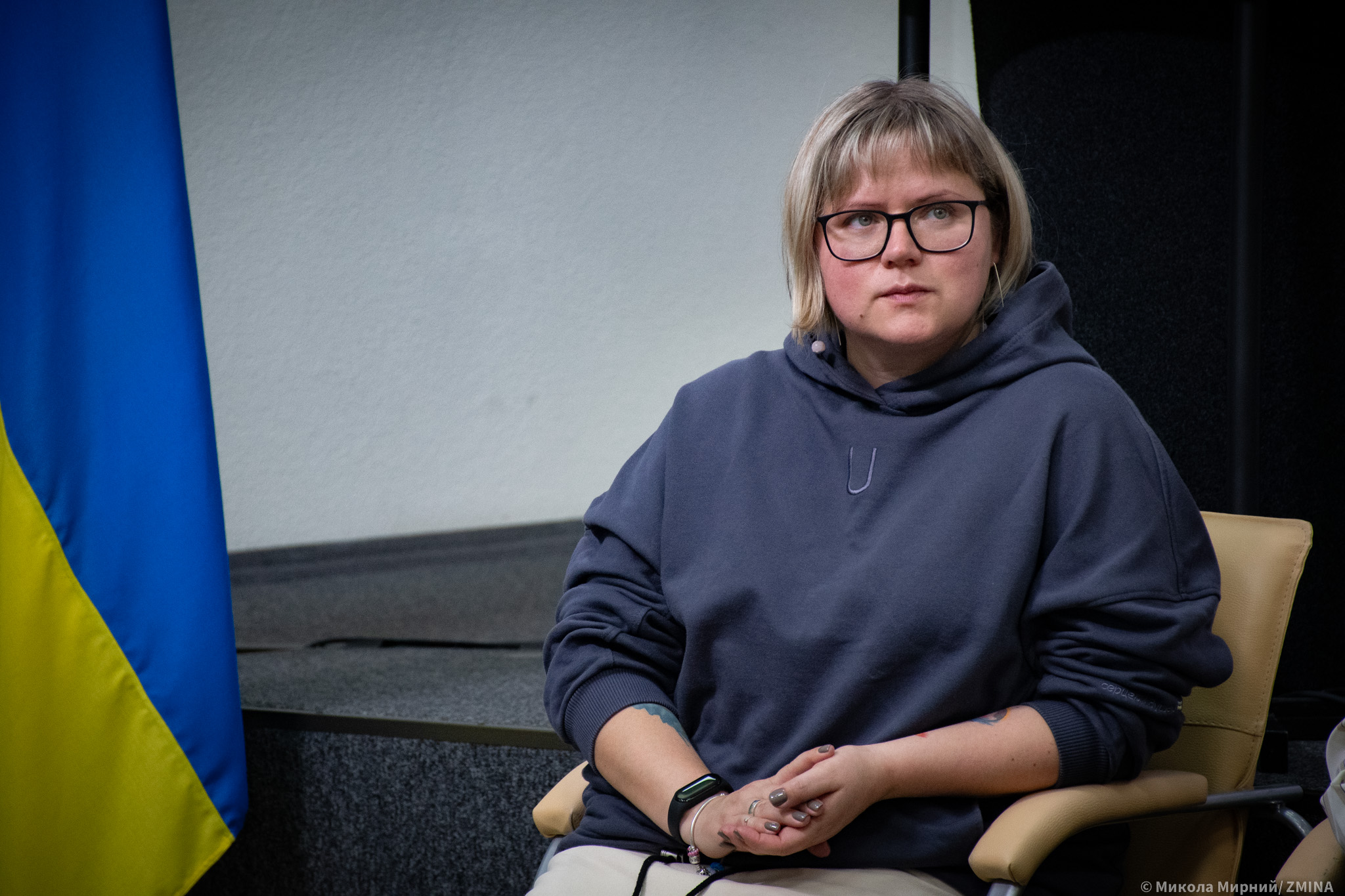 Alyona Lunyova
Alyona LunyovaUkrainian citizens residing in Russia or occupied territories without Russian passports or foreign resident documents can be added to this registry. Such inclusion results in significant restrictions, including employment bans and the inability to access banking services.
Lunyova elaborated that while Russian law technically allows for deportation of individuals in the registry, Moscow refuses to deport Ukrainians back to Ukraine, citing severed diplomatic relations. Instead, they detain Ukrainian citizens in special detention centres for foreign nationals, facilities that operate under prison-like conditions with an absence of proper medical care.
Lunyova highlighted that a particularly concerning pattern emerged after October 2022, when Ukrainian prisoners from the Kherson region, upon completing their sentences in Russian prisons, were immediately re-detained and placed in these foreign national detention centres.
The situation has created a dangerous legal limbo where Ukrainians face arbitrary detention without any criminal charges or legal violations, even under Russian law. These detentions can occur indefinitely, as Russia provides no clear legal pathway for release or return to Ukraine.
She explained that this system represents another tool of pressure on Ukrainian citizens in occupied territories, forcing many to choose between accepting Russian citizenship or risking indefinite detention under harsh conditions.

